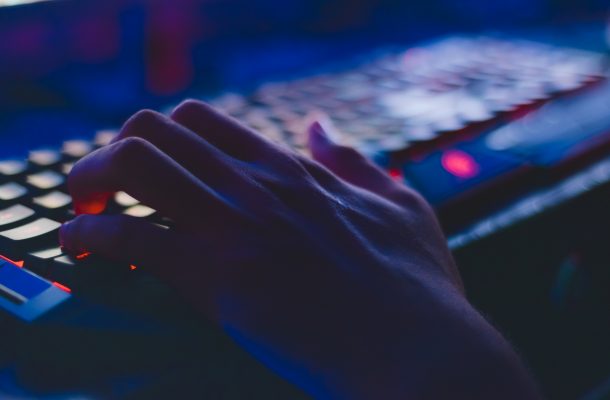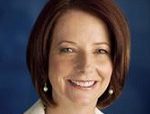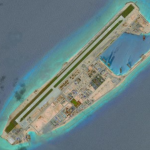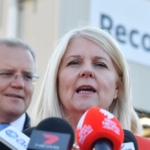Fending off foreign meddling in the Federal Election

Ahead of the upcoming Federal election, a new report has urged the Government to be proactive in protecting Australia against online misinformation, which has been used to influence election results overseas.
Edith Cowan University (ECU) and four other Australian universities produced the ‘Understanding Mass Influence’ report for the Department of Defence, examining the international impact of the deliberate spreading of misinformation online.
The study examined how Facebook, the Russian Internet Research Agency and political consulting firm Cambridge Analytica all contributed to the mass spread of misinformation overseas.
The report was co-authored by ECU’s Dr Andrew Dowse, Dr Violetta Wilk, Dr Carmen Jacques, Dr Stephanie Meek, Dr Kelly Jaunzems and Conor McLaughlin co-authored the report, overseen by ECU Securing Digital Futures director Tony Marceddo.
Mr Marceddo said the potential damage to Australia’s democratic institutions from mass influence campaigns should not be underestimated.
“Commercial operations and foreign governments now use sophisticated digital techniques and technology to spread disinformation and propaganda that influence our citizens in the way we think and behave,” he said.
“The findings from this report are a timely reminder of the importance of influence and the need for Australian Governments to put in place strategies to counter these threats.”
A constant threat
ECU School of Business and Law lecturer Dr Stephanie Meek said new measures need to be taken in the cyber space, due to digital technologies becoming a part of everyday life.
“Most people today have access to some form of social media. which means they are susceptible to manipulation and persuasion,” Dr Meek said.
“Often the manipulative tactics used are not noticed by the target. The subversiveness of the persuasion is what is really concerning especially for people who are already considered vulnerable.
“There are many entities who have the capacity to manipulate individuals to such a degree that it causes societal change – sometimes to the point where elections are won or lost.”
What’s going on?
Dr Meek said governments and large non-state organisations have the resources to collect huge amounts of valuable information on people, which is then used to fit the perpetrators’ objectives.
“They can not only get publicly available data, but also people’s private information, which can be used to build comprehensive profiles of millions of individuals,” Dr Meek said.
“Psychological profiling is then used to inform the design and creation of targeted content, which is dispersed through social media and can shift public opinion and change consumer behaviour on a massive scale.”
Dr Meek said these techniques could include target audience analysis and market segmentation, psychological warfare, social media profiling, inflaming sentiment, creating fake social media pages, trolling, bots and online bullying.
Who is behind it?
Though other nations have the capacity to influence foreign elections, Dr Meek said organizations such as Cambridge Analytica are also hired to wield influence online.
“Most of these organisations position themselves as marketing analysis experts or behaviour change agents, but basically they will work for whoever pays them including political groups,” Dr Meek said.
ECU School of Arts and Humanities research officer Dr Carmen Jacques said while Australia hasn’t faced the large-scale campaigns undertaken elsewhere, we are still vulnerable.
“Australia has not experienced a direct attack or manipulation such as Cambridge Analytica in the UK, USA and some African countries, but Australian politicians are proving ready to use social media to directly access their voting publics.
Dr Jacques said protective measures against digital misinformation were needed to not only protect against election interference, but societal disruption also.
“Political, ideological or religious terrorists also use social media to garner influence and members,” she said.
“For example, in Australia right wing extremists or white nationalists have been building memberships and an audience through social media for years.
“Moreover, these groups have used recent protests against vaccine mandates to pursue their own political ends: they organise through social media, attach themselves to a protest or political movement and then make it seem as though they are a part of that movement and therefore reach new sympathetic audiences.”
Fighting back
The report made several recommendations to prevent deliberate use of misinformation to disrupt Australian politics and society.
These include devising a code of practice for the ethical use of persuasive technologies that guarantees protection of liberal democratic principles and gives influence operations entities legitimacy.
The government should also implement and enforce stringent data harvesting procedures that ensure data is collected legally and employ multidisciplinary teams of experts to analyse target audiences and develop contextually nuanced content.
The government could also develop indicators and metrics for influence at the macro, meso and micro levels, leveraging both the human and analytical sciences and launch a strategy for gaining access to social media and other online data underpinning next generation persuasive technologies.
The government should also deploy a qualitative-quantitative situational awareness strategy for mapping and visualising the information and influence environment.
‘Understanding Mass Influence’ is a collaborative, multi-disciplinary project involving ECU, the University of NSW, University of Adelaide, University of Melbourne and Macquarie University.
Open Forum is a policy discussion website produced by Global Access Partners – Australia’s Institute for Active Policy. We welcome contributions and invite you to submit a blog to the editor and follow us on Twitter, Facebook, Linkedin and Mastadon.










